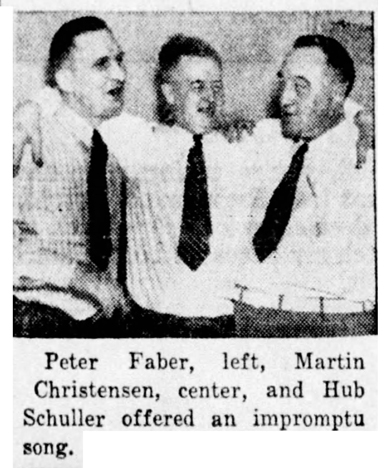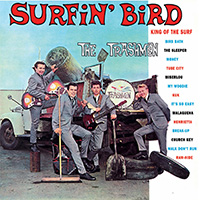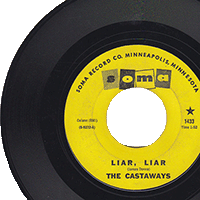Schuller’s Tavern
Golden Valley
This tavern in the middle of nowhere was built in 1926, according to the County database.
The sign at Schuller’s Tavern says it was established in 1929, which was nearing the end of, but still during Prohibition – that never made any sense to me.
Methinks this place is much older than that.
THE POINT
Not to be confused with the Point Supper Club on Golden Valley Road, this Point was “notorious” and had to be shut down. But let’s start from the beginning, or as early as I could find.
On June 30, 1906, Fritz Hozapxxx (the page was folded over) applied for a liquor license for a tavern at Sixth Ave. No. and Watertown Road in Golden Valley. Watertown Road later became Western Ave., and is now Glenwood Ave. Sixth Ave. No. was pretty much obliterated by Highway 55, but there were shards of it remaining. This section of it was eventually renamed Country Club Road.
In August 1907 and June 1908, Fred P. Scheffel applied for a liquor license at the same address.
In September 1910, Herman Yake applied for a liquor license at this address, which was referred to as Golden Valley Point. Yake presided there until at lease March 1912; an article at that time said that it was the only saloon near the Golden Valley Village Hall, so Yake had to remain neutral in matters of politics.
By March 1915, Yake had moved on.
HUB SCHULLER
An item about a cattle auction tells us that on or before November 5, 1915, Hub Schuller was the Proprietor of the Golden Valley Point Saloon. Plymouth Ave. and Sixth Ave. No. I guess he was new at this, since Plymouth Ave. was at about 13th Ave. and parallel to Sixth Ave. No.
In 1918, Hub Schuller reported that he was a retail liquor dealer on his World War I registration card.
Prohibition officially began in January 1920, and on the 1920 Census, Schuller reported that he was a soft drink merchant. It appears that he soon sold the business, however.
THE LANGFORD MURDER
On April 2, 1921, a shooting occurred that riled the community against The Point to The Point that The Point was shut down.
A man named Morris Posnick, a whiskey smuggler, said he was an old friend of the victim, deputy sheriff Arnold C. Kaech. Posnick gives about as good a description of the night as anyone:
About midnight of April 2, 1921, I was taking lunch with some friends at the “Chicken Barbecue” on Sixth avenue north near Lyndale, when [Ray] Langford and some colored friends of his came in. I had known Langford for a year or two, though not intimately. It was suggested that Langford and his friends go with me in a new car I had recently bought to “The Point,” a sort of road house at the intersection of Western [Glenwood] and Sixth avenues north.
It was there that we met Kaech. With him were Emmit Doran, Martin Burfenning and John Knaeble. I bought a drink of hard liquor there for the crowd and Langford suggested that we go down to his place. I took Langford and his friends back to the Chicken Barbeque where Langford had left his car. Kaech brought the others in the machine he was driving.
We all went to Langford’s place and started shooting craps. I quit playing after 20 minutes or so. The others played for a little over an hour when Mrs. Langford came into the room with an automatic revolver in her hand. The first I knew the gun was discharged and I saw Kaech making a pass at the woman to get the gun away from her. He said “I am hurt” or something like that. Several of us tried to get the gun. I took it out of the woman’s hand and put it in my pocket. Later, when the police officers came I turned it over to them.
Mrs. Langford (described in that era’s press as “negress”) testified that she was not feeling well and was trying to sleep but the boys in the kitchen were making a racket with their dice game, and she got mad and pointed a .38 at them to try to get them to leave. There was a wrestle for the gun and it went off, killing the white deputy sheriff who was one of the dice players.
Mrs. Langford was tried and convicted of first degree manslaughter. Although the jury recommended leniency, on May 6, 1921, she was sentenced to 5 to 20 years in prison. Numerous petitions were submitted asking for her release, including those from two jurors in the case. Margery Langford was pardoned and released in July 1921.
At the time of the incident, The Point was owned by W.C.J. Herman and leased to J.O. Keefe. Emmett Doran, aka Emmett Casey, was named as manager of the roadhouse during the trial. Other operators of the saloon named were Max Zimmerman and Henry Sommers.
On May 31, 1921, a large delegation of Golden Valley residents called upon two Hennepin County assistant district attorneys, asking that “vigorous action be taken” against The Point. They stated that liquor has been sold there for some time with no real effort made to conceal it. “Drunken automobile parties are familiar sights in the valley because of this.” (Minneapolis Star, May 31, 1921)
On June 11, 1921, the “Notorious Joint” was closed by court order for a year.
SCHULLER’S GAS
Hub rode out Prohibition by operating a gas station in front of the tavern. He had it at least from November 1921 to 1942, when it burned down. The station must have done good business – the 1930 Census showed that he lived in a $12,000 house on Sixth Ave. No. in Golden Valley, and had four boarders. Indeed, in 1929 and 1933, the Schullers could be found in the Society Pages!
HUB SCHULLER’S TAVERN
Beer became legal again in April 1933, and presumably Hub opened right back up, this time naming the place Hub Schuller’s Tavern. The first evidence I found of this wasn’t until April 1937, however. The papers gave the bar’s bowling team’s scores, starting in about 1939 – they bowled at Ascension Alleys.
In July 1941, the Golden Valley Commercial Club’s annual picnic was held at Schuller’s Grove, which was right at the bar. Picnic-goers were urged to bring old pots and pans for the Government to use for the aluminum.
On January 9, 1942, a huge fire destroyed Hub’s gas station and damaged the tavern.
Hub died on March 27, 1942, at the age of 59, after a long illness. He is buried at Ascension Cemetery in New Hope. His obituary in the Minneapolis Star said that he had been “Prominent in business and civic affairs of Golden Valley for 32 years,” citing membership on the GV planning commission, the Knights of Columbus, the North Side Commercial Club, and the GV Golf Club.
In May 1945, a hold-up report revealed that Marvin Schuller, Hub’s nephew, was in charge at the time.
On June 6, 1946, there was a Dram Shop suit. Hub’s widow Clara was the presumed owner. The place was still being called Hub Schuller’s.
On June 15, 1955, a fire caused $100,000 in damage to the two-story, log cabin building. LeRoy Schuller, Hub’s son, was the manager. The address was given as 7348 Sixth Ave. No.
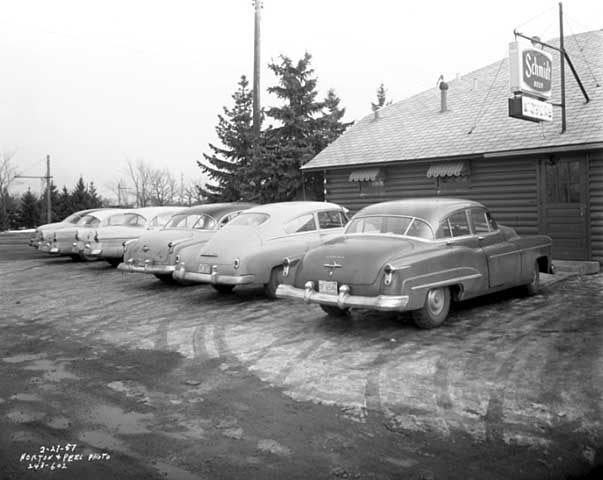
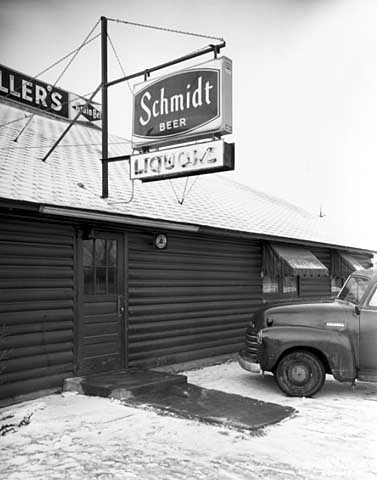
Aha! Proof that there was music in the old days of Schuller’s!
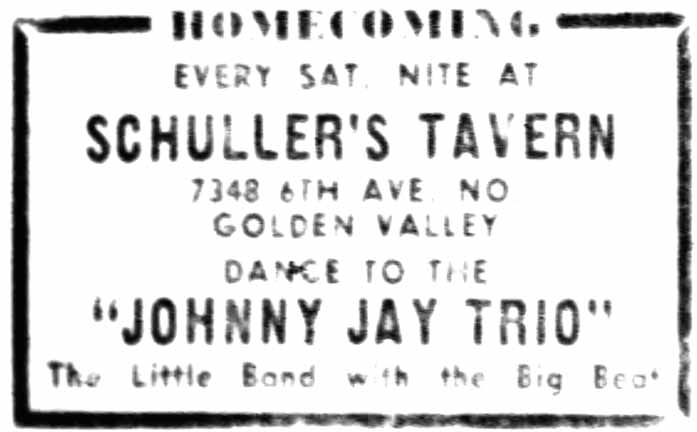
On July 21, 1960, the Golden Valley Village Council suspended the tavern’s license for 10 days for serving liquor to minors. On June 17, 1960, cops had found a teenager staggering on Olson Memorial Highway. The kid said he was with a group of minors who were served at Schuller’s. The teens and five employees plead guilty. The minors were fined $25 for each of eight charges; three for false ID and five for drinking liquor as minors. The judge levied $100 fines, with $50 suspended, against Clara, two bartenders, a waitress, and the manager. Clara wasn’t there at the time. (Minneapolis Star, July 21, 1960)
In June 1961, Clara transferred the liquor license to a corporation made up of herself, son LeRoy, daughter Donna Mae Kuiper, and daughter Kathyleen M. Reiser.
In 1974, the tavern was advertising turquoise booths for sale, indicating some updating. What I’d give for a turquoise booth!
Clara died in May 1976 at age 88.
Today the address is 7345 Country Club Drive in Golden Valley. The exterior retains its log cabin look, but the interior is a little plain. But there is lots of live music!
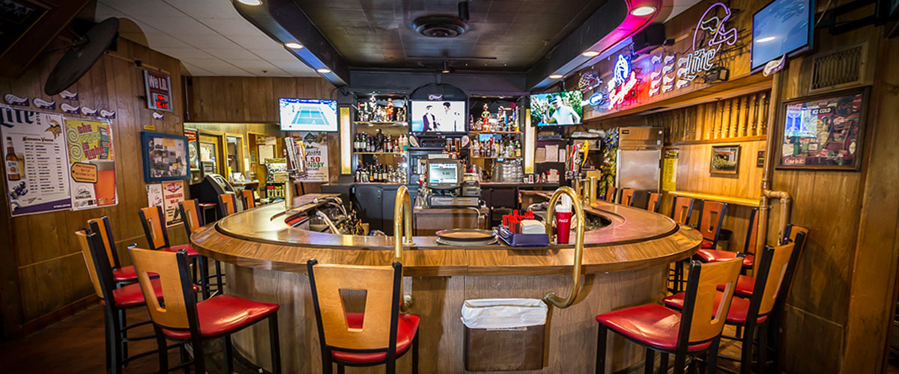
MORE ON HUB SCHULLER
Couldn’t help but do some research on the namesake of Schuller’s Tavern. Here are some bits and pieces from Ancestry.com:
Hubert Mattias Schuller was born on May 2, 1883, probably on his parents’ dairy farm in Crystal Lake Village (now the City of Crystal), Minnesota. His father Matt and his Mother Elizabeth (called Lizzie) were both born in Minnesota.
Hub only had an 8th grade education. In 1900, at age 17, he was a driver on a milk wagon, perhaps for his father. In 1910 he continued to live and work on the family farm in Crystal Lake.
On September 25, 1918, he registered for WWI, although he was 35 years old. He wrote his name as Hubert Matt Schuller, and his address as Robbinsdale Route 2. He gave his profession as Retail liquor dealer. The card asked for any disabilities, and he wrote “Thumb off and part of first finger knuckle.” He was not inducted.
Hub and Clara Josephine Striebel were married on June 15, 1919.
On October 19, 1936, Hub was pictured making merry at the Golden Valley Commercial Club Stag dinner at GV Country Club.
